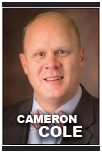By Cameron Cole
The biggest misconception people have about estate planning is that “they are not that old and can do it later,” say almost half (49 percent) of advisors in a recent Key Private Bank Advisor Poll on estate planning. Yet, the majority (73 percent) of advisors say the ideal age to start putting an estate plan in place is before 40 — earlier than many people think.
Estate planning can be a sensitive and complex topic for families to address. Poll results confirmed this fact, with 39 percent of advisors saying adult children stress over a parent’s reaction in raising the topic, and one-quarter (24 percent) saying families are concerned about not knowing where to start from a tactical standpoint.
With potentially significant changes coming to estate and gift tax rules under the Biden administration, now may be a perfect time to enact — or update — your estate plan. Failing to do so could lead to a costly missed opportunity.
If you are unsure where to begin, here are some financial planning to-dos that high-net-worth individuals and their families must tackle for their estate plans. Each of these to-dos were ranked in order of priority by advisors experienced with estate planning.
Meet with a financial advisor and an estate planning attorney to discuss your wishes. The biggest estate planning mistake is having no plan at all, say four in 10 advisors (43 percent), pointing to an urgent need to proactively start estate planning discussions. Yet, the top triggers for estate planning conversations are financial advisors raising the topic (29 percent) and life-altering events, such as a car accident or health crisis.
If you already have a plan in place, remember to regularly connect with your advisor and attorney to keep it up to date with the changes in your life — 60 percent of advisors say half or fewer than half of their clients have reviewed their plans in the past five years.
Designate a financial and healthcare power of attorney. Estate plans contain multiple components that may overlap, including long-term care plans and powers of attorney, which define who has decision-making power in the event of a medical emergency.
Decide on and draft healthcare directives. According to Key Private Bank’s previous Advisor Poll on long-term care planning, six in 10 advisors (58 percent) say fewer than 25 percent of their clients have a long-term care plan — which could potentially be used to address the client’s healthcare directives.
With the cost of care expected to continue to increase, it is important to make your healthcare and long-term care wishes clear now. Work with your advisor to create a financial plan that incorporates your wishes and factors them into your estate plan.
Create a will. A will can be considered one of the foundational aspects of estate planning, but often, it is the only step that people take. More than one-third (35 percent) of advisors say the biggest misconception about estate planning is that a will can oversee the distribution of all assets. While a will remains a necessity, it is critical to think about estate plans holistically — as more than just a will.
One modern aspect of financial planning that can be overlooked in wills and estate plans is digital assets. As more of our personal and financial information goes online, high-net-worth individuals should be taking inventory of digital assets.
Determine and regularly update beneficiary designations. As part of estate planning, an advisor can help high-net worth individuals designate beneficiaries for assets like retirement plans. Contrary to what some may believe, an estate plan —including beneficiaries — can be changed after the plan is initially put in place. In fact, a regular review of estate plans is highly recommended — 35 percent of advisors say the biggest estate planning mistake is not updating documents. To further that point, 9 percent of advisors say the biggest estate planning mistake is having outdated beneficiaries, underscoring the need to review estate plans and designated beneficiaries with advisors and attorneys on a regular basis.
Determine whether to create a trust. A trust is another foundational, yet optional, component of estate planning. Determining whether a trust is appropriate could be a matter of understanding and exploring your wishes for the next generation.
Four in 10 (39 percent) advisors say half or fewer than half of estate plans capture their clients’ values in transferring their wealth to the next generation. Additionally, 60 percent of advisors recommend clients devote more attention to informing younger generations about caregiving or legacy preferences, according to Key Private Bank’s previous Advisor Poll on generational wealth.
Plan asset ownership. Most advisors (77 percent) say the hardest part of estate planning is navigating interfamily dynamics. These issues can become even more complicated when dealing with elaborate family structures, like multiple marriages and blended families. Divvying assets along family lines in these instances can often suggest that “equal” does not mean “fair.”
Still, asset ownership is core to estate planning, and advisors are well-positioned to help high-net-worth individuals and their families steer the dynamics of doing so.
Communicate with heirs. A majority of advisors say that communicating wishes openly and honestly with family members is one of the most difficult parts of estate planning. Additionally, most advisors say only some or hardly any clients are having open conversations about estate plans with children and family members and only some or hardly any are doing so with their advisors present (81 percent and 83 percent, respectively).
Remember, advisors play an essential role in not just estate planning, but also guiding high-net-worth families through challenging financial conversations.
Cameron Cole is the Key Private Bank sales leader in Utah.
Any opinions, projections or recommendations contained herein are subject to change without notice and are not intended as individual investment advice. This material is presented for informational purposes only and should not be construed as individual tax or financial advice.








